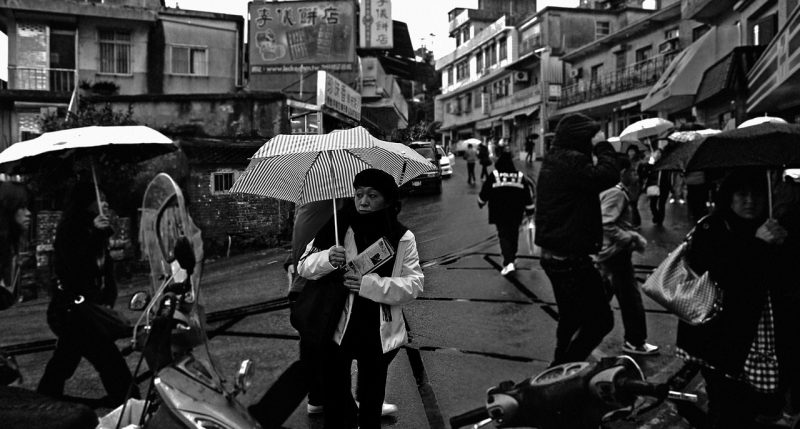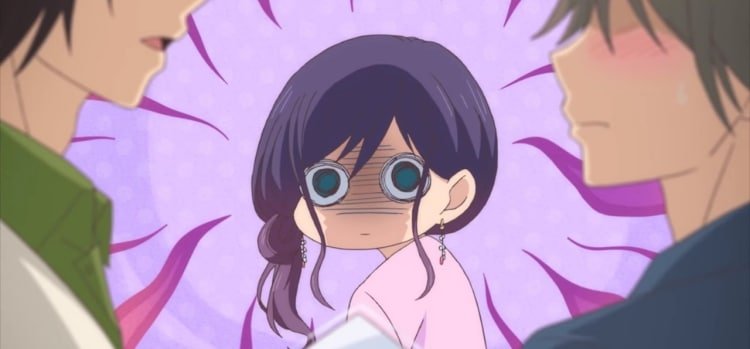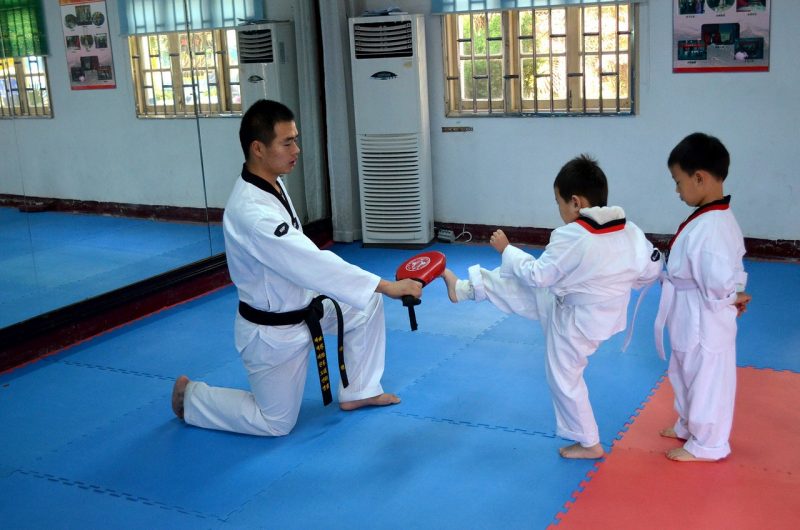In recent years, several movements have emerged on the internet in order to spread freedom of expression and fight against inequality, machismo, prejudice, homophobia, racism and others.
I appreciate the dedication and struggle of these movements for equality, but unfortunately some of these movements go to extremes and end up causing what they are fighting against.
I personally believe that hate for different thoughts is very present in some of these movements, so I'm even afraid to talk about this subject and end up attracting a range of haters (hatred) for expressing my different opinion.
I'm not going to give up writing on this subject, so let's go! To be honest, I believe that many of the things that some of these movements propose are selfish, unnecessary, and that most of the time they don't work.

When studying Japanese culture, I've come to realize that most Japanese people don't struggle or struggle with things like machismo, prejudice and homophobia. Even so, Japanese society, despite its problems, manages to provide a diverse and peaceful society.
I decided to write this somewhat controversial article, because of a conversation I had with a friend who has lived in Japan for 10 years. I even recorded the audio, in the future I intend to post everything here.
Another very interesting point is that in 2018 the candidate Jair Bolsonaro was elected as president of Brazil, which left many who participate in movements or resistance, afraid of a possible dictatorship or increase in homophobia, prejudice or racism. Maybe this article can help you not to worry too much and see things from another point of view.
(PS: this Post was written on a tablet, I will still revise it more)...
Índice de Conteúdo
Fighting for Freedom and Rights
I'm not going to tell anyone to stop striving for something they want, but we have a few things to learn from Japanese society. There are negatives and positives for those who choose to fight against society's ideas or submit to society.
The Japanese way of thinking considers the will of others first and not of themselves. So even if the Japanese want to change something in society, they won't do something that might bother or be mendokusai (annoying, a pain in the ass, difficult) to others.
That's why in Japan there are things like the communist party, places prohibiting the entry of foreigners and other rules that make the Japanese follow in silence so as not to disturb others, such as making phone calls on public transport.

In Japan women suffer wage inequality, homosexuals cannot officially marry, there are breaches of labor rights and many other problems that Japanese people face. Why don't they do anything?
Speaking that way, it seems that the Japanese are dead of laziness or don't care about society. There are struggles to change, but they are done in a peaceful way that doesn't bother others, instead of violent, unethical and immoral protests that happen in Brazil.
What's wrong with fighting?
It's okay to fight, in reality I'm a person who fights against the trends and popular thoughts of society. But in some of these movements, what I see is people trying to force their thoughts on each other.
For example, just as we cannot force an atheist to believe in God, we cannot force a religious person to accept homosexuality if it goes against their beliefs. What we can do is fight for everyone to respect each other's opinion and also the next, regardless of their sexual orientation or religion. Even because sexuality is something personal, the Japanese think like that, so both those who hate it and those who adhere to other sexual options can live in peace without problems. Just respect each other's options, but you don't have to force anyone to like something they don't like.
Unfortunately, the opposite happens, we have religious people being homophobic and homosexuals disrespecting religious people. Not to mention the fights and arguments between atheists and religious people.
People need to understand that the world doesn't just revolve around them, people think differently, we can't have everything we want, we must fight for things that are within our reach and not harm others. !

Most of the thoughts propagated on the internet by movements that apparently try to help or free society are very selfish and only serve to generate wars and hatred. Remember I don't mean everyone, don't try to generalize what I'm writing.
Generalization is one of the most harmful things in society today, people face social problems in an alarming way, when most of the time the problem is personal or is in the way of thinking of each one.
For example, aaaah in Japan people commit suicide a lot. When you go to research, you realize that it's only 18 out of every 100,000 people a year. It's an unfortunate number, but people put it in their heads in a generalized way, as if 1 in 100 people kill themselves every day.
Generalization was one of the things that caused most disgrace and fights in the 2018 elections. People raise wrong or generalized information and end up thinking that Haddad will transform Brazil into Venezuela or that Bolsonaro will create a dictatorship.
Things like prejudice, racism and homophobia are not unique to Brazil or Japan. No matter the country or the laws, unfortunately, there will always be people with these thoughts. In fact, Brazil has already achieved a lot through these movements, and everyone is to be congratulated!
The problem is that some, because they are different, fight for special privileges. They want to be superior to others. For example, I've heard cases where universities formerly reserved a percentage of their seats for blacks. for me this is not a fight for equality but racial division.
In Japan it doesn't matter if you are black, foreign, homosexual, rich, poor, ugly or beautiful, you will be respected by most people, but you can face uncomfortable situations because of prejudice or hatred.
It would be nice if all haters, bigots or people with different thoughts would simply cease to exist. Unfortunately, there will always be these bad people, but it is not with hate that we will fight hate.
People are madly attacking each other on the internet, especially during elections. I think that if everyone stopped to think about the next and made an effort to respect their ideas, things like prejudice, homophobia and racism would not exist.
The problems of keeping the peace
Telling people to stop killing each other over certain issues can be difficult. One of the most common theories of humanity is that for every action there is a reaction. I'm just saying that if a person is battling hate, they'll never win if they also use it.
We must treat people as we would like to be treated, this is one of Brazil's main mistakes. Of course, even so, good will not always win things like prejudice, racism and homophobia, so they still happen. Ijime (bullying) in Japan.
If you hate something, it would be best to stay away from it to avoid discomfort. It doesn't matter your color, gender, nationality or sexual orientation, if someone treated you with a lack of respect, the laws exist for that. The fault of the laws in Brazil is the politicians' fault and not because you or your friend is different. Apparently people who are different want to be treated the same but struggle to be different and privileged.
The article is still halfway through, but we recommend also reading:
Experience of a Brazilian in Japan
When talking to a friend who has lived in Japan for over 10 years, he told me that as a child he couldn't stay a month in Japanese school because of prejudice and bullying. He even came back to Brazil a few years from the anger he got from the Japanese.
Think about it, he found the Japanese prejudiced because both the students he studied with and the teachers lacked respect, in a nation where respect was to be a priority.
This resulted in what? This friend was angry with the Japanese. This shows once again that prejudice breeds prejudice. Until finally this friend returned to Japan and started looking at the Japanese from a different point of view, he started to think like a Japanese.
He realized that despite having some misfortunes in society, he was treated with a lot of respect by most other Japanese, a very high level education even if it is between business.

Some might think it's all a falsity, that later the japa will be calling him baka gaijin (stupid foreigner). I think so, if he treated me with respect, it's his problem if he has stupid prejudiced thoughts. If he treats me in a disrespectful way, I could get into a shack and smear my name even more, or depending on the situation I could make a BO, as much as the Japanese police will listen to the Japanese more.
To this day this friend of mine has trauma from school, and he doesn't like to hear the expression baka gaijin. But he managed to overcome prejudice by eliminating any thoughts of hatred he had for the things he went through.
During the conversation with this friend he mentioned some interesting points:
- It is very easy for you to try to change the world behind your computer, while your room, your house and your neighborhood are dirty;
- If you want to be treated like a normal citizen, then act like a normal citizen;
- I'm black and I live in Japan, you can call me black and I don't care. I live in Japan and there is prejudice here? No, prejudice exists everywhere;
- I recommend researching the histories of blacks in the USA in the 20th century, there really are people who fought for their rights. Only they changed civil rights and not people;
- If you want to make a person have the same point of view as you have to do it by your actions;
- As much as there are prejudiced Japanese, they can't judge me for disrespecting him, because I treat him well and follow the rules of Japan;
- Too much freedom and saying what you want all the time is harmful. If you have too much freedom, you don't have a limit and you end up with no purpose;
- Stop trying to be a social justice on that computer and go live your life, go help your family, your neighborhood, your friends, try to change the world outside the internet, because there are only trolls there;
- People don't know how to think beyond what they read on the internet. The world is much bigger and much more different, these people need to travel and get to know other places and cultures;
- Many want respect but do not respect others;
What does Japan think about this matter?
As I mentioned at the beginning of the article, the Japanese only do what they can. It may not seem like they don't strive to change society, but really they don't usually think about it, they simply accept the thinking of others and do their best to respect everyone, regardless of their choices and positions.
For this reason the Japanese do not worry about the existence of the communist party in their country, nor do they discuss prejudice. They simply take care of their own lives, always respecting the space of others. They don't give an opinion or point out whether this is right or wrong.
This results in a society that despite its social problems, pressure and falseness, manage to remain totally peaceful, providing the best for the next. Those who decide to have a lifestyle different from what is common in society must face the consequences.
What I mean is that it doesn't matter your race, color, sexual orientation, political opinion, thoughts, tastes and culture. If you really want a better Brazil you need to focus on respecting others instead of arguing and writing hateful comments on the internet.
I can't believe this text is going to make everyone think and accept their own mistakes. Unfortunately, there are people who insist on criticizing and hating any different thought from theirs. Some will read but will understand the opposite of the message I want to convey... If you really want significant changes in society, then share this article.







